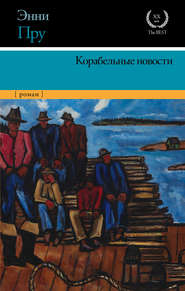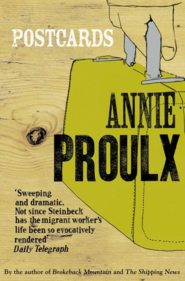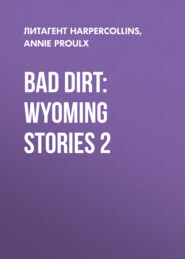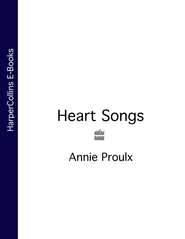По всем вопросам обращайтесь на: info@litportal.ru
(©) 2003-2024.
✖
That Old Ace in the Hole
Автор
Год написания книги
2018
Настройки чтения
Размер шрифта
Высота строк
Поля
“Who the hell are you and why the blue tarnation are you creepin up on us? You one a them fellas with a sticky rope admires other folks’ horseflesh?”
“Sick. Can’t walk. Meant no harm.” It seemed funny that they saw evil design in him. The talking made him vomit again.
“Christ, you smell like you been shittin yourself as well as losin your okra.”
“Yes. Sick. Sick.” He said a few words about the cornmeal cakes and the dead horse and the sudden diarrhea.
“You get your water at Twospot? Little pond a water there?”
“Yes.”
“That’s squitter water. It’ll make you want a die, make you think your guts is bein pulled out a your asshole with your mama’s crochet hook, but you won’t die and most gets better and some even drinks that squitter water again and has no ill effects. I done it. Anyways, we got the fix-up for it. Just wait here. You ain’t comin into this camp smellin like shit and puke boiled with skunk cabbage for a week. You lay out here folded up like a empty purse and we’ll bring it to you.”
The cure, as they called it, was a tin cup of brown liquid toned up with some kind of cheap whiskey. He drank it and promptly vomited. The man with the multicolored beard fetched a second dose, which he took in tiny sips, willing it to stay down. When the cup was empty he lay in the grass and closed his eyes.
“Give her a hour or two to work,” said the giant and they disappeared into the dugout.
Near sunset they reappeared with a basin of steaming water and some folded garments. They pulled his noisome shirt and pants from him and poured the basin of hot soapy water over him, threw down a flour-sack towel and advised him to get into the fresh clothes.
“My valise …” he said, pointing back the way he’d come.
The tall man said, “Good idee. Why have him stink up our duds with his squitter shit when he can do what he wants with his own?” He saddled one of the horses and rode in the direction of the creek camp. Martin lay naked and cold on the prairie and began to shiver but at least he was no longer racked with spasms. The multicolored beard brought him a biscuit and some clean water.
Before the sun went down the tall man was back with the valise, which he opened and went through with interest. He tossed a pair of pants to Martin and a striped cotton shirt. Martin asked for his spare underdrawers but the man laughed and closed the case.
“Sonny, no man in Texas wears them. Just slows you down whatever you got in mind. I’n use them for a dishclout.”
They gave him a corner in the dugout and the tall man who said his name was Klattner, late of Arkansas, promised – as soon as he learned there were coffee beans in it – that he’d get Martin’s trunk in the morning.
“We been out a coffee a month. Tried to git a little in Woolybucket but they’re out too and no supply wagon due until June. So your coffee will be appreciated. What damn old Woolybucket needs is a good store. The one they got in Woolybucket now, it’s not no good. There’s a crazy doc half runs it when he ain’t layin on a sofa dead drunk. Couldn’t hit a elephant’s ass with a banjo. Used a have a regular storekeeper, but he lost the emporium to the doc in a game of chance. Doc don’t never order enough coffee, flour, sugar, what-have-you. All last winter no flour and no tabacca. My God, he got in a thousand pound a saleratus and not one teaspoon a flour. We horsewhipped him but it didn’t do no good. Bad as ever.”
“Would his name be Doctor Mugg?”
“It would. You know him?”
“No. I was told he was well-regarded at curing sick folks.”
“I don’t know who told you that but the informant was lyin. Doc Mugg couldn’t cure a ham if you gave it to him in front of a smokehouse. What Doc Mugg needs in the cure line is the water cure – for hisself If I was you I’d get better on my own. Fresh air and whiskey is best and plenty work.”
The multicolored beard chimed in. “If I was you I wouldn’t tie up to Doc Mugg for a minute. He’s filled up the graveyard complete and is startin on another. Why don’t you git his store away from him and run it good – run it honorable. Every man would greet you with hearty goodwill wherever you may go.”
But Martin Fronk had fixed his sights on making a fortune as a cattleman, whether drover or rancher, found the idea of running a store repugnant and said so.
“I spose you want a be a cattleboy,” drawled the multicolored beard whose name was Carrol Day, a curiously feminine name, thought Martin, not yet acquainted with the bearded Marions, Fannys and Abbys of Texas who, saddled by their unthinking mothers with dainty names, built savagely masculine frames of character.
“I believe I’m too old to be a boy again of any kind.”
“Age don’t matter. Some a the pertest cowboys is pushin seventy summers. Lookit old Whitey here,” nodding at the tall man who was wrapping rawhide around the helve and head of an axe. “He’s most eighty and he’s more cowboy than any ten ordinaries.”
“He’s a cowboy?”
“Hell yes. Been up the trail to Montana what, twenty times?”
“Twenty-two. And that was enough. It’s too cold up there. Snows all summer. You git paid there’s no place to spend your money. Just turn around and come back to Texas.”
“What about Miles City? What about Cheyenne? What about Denver? I understand you paid them towns a visit on your return journeys many a time.”
“My money was gettin too heavy. Anyway, Martin here don’t want a be no cowboy or no storekeeper. I’n see he’s got bigger ideas in mind.”
“I was thinking about the stock-driving business.”
Both men began to scream with laughter. Carrol got down on the dirt floor and rolled, moaning, “Oh my sweet cabbage patch, ‘the stock-drivin business.’”
“You idiot,” said Klattner. “Make it in the stock-drivin business, you got to know cows like you know your own tweedle-dee. You got to have cowboyed, got to know the markets and men. You have to sweet-talk crazy farmers and handle Indans. We just got burned alive, me and Whitey, in the stock-drivin business. Stampedes, Indan troubles, blueburnin Kansas farmers – ”
“Indians?”
“Hell, they’re no bother,” said Carrol. “Just give em one a your cows and they leave you alone. A course after fifty donations you’re down fifty cows.”
“They can be trouble,” said the other. “There’s Quanah Parker. And others. There was that clock salesman – ”
He didn’t want to hear about the clock salesman again.
“I could run a store,” whispered Martin Fronk, giving up his plans to become a rancher or cattle drover. The waterholes were too chancy.
The next day he felt distinctly better, packed his suitcase and asked his hosts if they could spare one of their horses so he could get to Woolybucket.
“You buyin or borrowin?”
“I’m agreeable to purchase one of your steeds. Preferably one that is docile and of gentle disposition.”
“That one died last year. But we can let you have that sorrel gelding for twenty dollars. He’s got two names: You Son of a Bitch and Grasshopper. He don’t like grass a wave in the breeze and when it does so he hops. You purchase old Grasshopper and we’ll draw your wagon in next week. See if you can’t git that store away from Doc Mugg and do right by the town.”
The other added his advice. “And, if you do, lay in plenty coffee. And keep your supply wagon outn reach a them damn red sloughs. Look like dry riverbed places along the Canadian but you break through to the mud, stickier than boiled molasses mixed with glue, and eight hunderd foot deep. It’s happened.”
You Son of a Bitch disliked waving grass, birds, distant riders, prairie dogs, clouds, saddles and, as Martin Fronk came into the outskirts of Woolybucket, black-and-white dogs. One of the last named sent him into paroxysms of bucking until Martin departed the saddle. The horse stood trembling, facing the barking dog. Martin picked up a few stones and threw them accurately and hard at the dog, which ran yipping to a ragged tent. The side of the tent was painted with letters: GEN’L STOR DF MUGG MD PROP.
He went inside the tent. There was an ungodly welter of stuff, from unfurled yard goods to bullwhips.
“Got any coffee?” he asked the shambling wreck entangled in a bolt of blue daisy cotton. Was that a banjo on the cold stove?
“June. Didn’t send it yet. Come back in June, sir.”
He left, wondering if he’d seen the fabled Dr. Mugg, thinking he could run that store with his head in a bag and hobbles on his ankles.
9 THE BUSTED STAR (#ulink_4bb16279-4bfe-53aa-b9fb-8afaf2c5548c)
Bob Dollar thought LaVon’s Busted Star Ranch, a little north of the Canadian River, a beautiful place. For the first time in his life he saw what extraordinary personal privacy a ranch family enjoyed. If he really were looking for a site to develop luxury homes this would be it. La Von told him the ranch had been mixed-grass grazing land – bluestem, buffalo grass, gramma, wheat grass and Indian grass – when the first settlers came into the country in the late nineteenth century. Moises Harshberger, her peripatetic grandfather, arrived in the panhandle as a young man in 1879, a year after her husband’s ancestor Fronk had taken over Mugg’s store.











